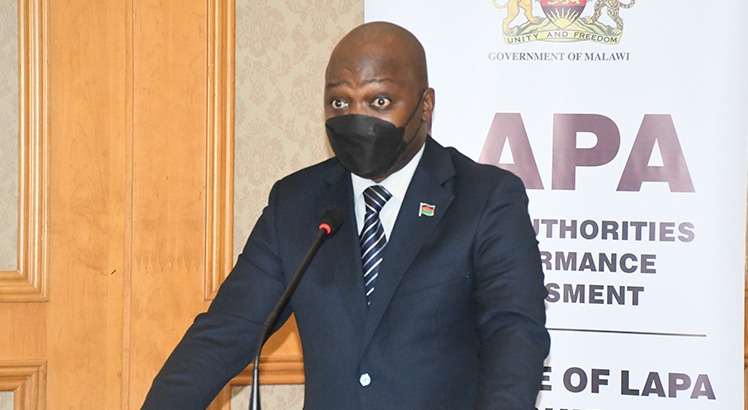Government’s unprecedented attempt to directly control edible oil prices could hamper the commodity’s supply on the market, hitting hard the very consumers authorities want to protect.
In an interview on Sunday, Consumers Association of Malawi (Cama) executive director John Kapito said the prices government has set are not a true reflection of what is happening on the global market.
Oil prices refuse to go down
He said cooking oil prices continue rising irrespective of the removal of 16.5 percent value added tax (VAT) due to the kwacha depreciation and shortage of key raw materials on the back of global supply chain disruptions.
Said Kapito: “What the traders will do is to control supply or put no cooking oil on the market at all.
Already, the market does not have cooking oil in some of the outlets and prices will immediately be raised to meet demand.
“The question is: For how long can government maintain these prices when it is a net importer, as such import prices and currency are beyond the control of government?”
Figures provided by Cama show that from October 2020 to date, cooking oil prices have gone up by about 160 percent, a development Kapito said makes it difficult for government to come up with national prices.
Following the removal of VAT in the 2022/23 National Budget, Ministry of Trade and Industry at the weekend published recommended prices for various cooking oil brands following consultations it held with cooking oil producers and retailers on May 5 2022.
According to the new price list, a two-litre bottle of Kukoma has dropped from K7 108 to K5 638 while the price of Mulawe is at K5 250 from K6 000.
On the other hand, a two-litre bottle of Purola is fetching K4 958 from K5 818 while the same volume of Soyola is at K5 672 from K7 150.
In an accompanying statement, Minister of Trade and Industry Mark Kastonga Phiri urged traders to ensure that cooking oil is sold at the recommended prices.
He threatened action against traders charging VAT on the products or engaging in price coupling.
Meanwhile, spot-checks in some of the country’s retail shops show a reduced supply or, in some cases, no cooking oil in stock.
Cooking Oil Processors Association president Peter Ngoma was yet to respond to our quationnaire on Sunday.
However, an industry expert observed that the country’s lack of forex means everyone is paying premiums to the banks while prices of crude are increasing on a daily basis.
“But the whole world is going through a tough time,” said the expert.
In his reaction, Katsonga Phiri said government did not dictate the prices as this is a liberalised economy.
He said: “They sent us the figures and we took average prices. We did not dictate prices as government doesn’t dictate prices in a liberalised economy, we can only negotiate like in this case.
“On the shortage of cooking oil, we might engage the Competition and Fair Trading Commission [CfTC] to find out if this is genuine or not.”
CfTC spokesperson Innocent Helema was yet to respond to our questionnaire by press time.
Last month, Ministry of Trade and Industry indicated that government removed the 16.5 percent VAT on cooking oil as one of its interventions towards reducing rising prices of cooking oil.
The move came after Minister of Finance and Economic Affairs Sosten Gwengwe announced the removal of 16.5 percent VAT on cooking oil in the 2022/23 National Budget Statement.
Last year, cooking oil producers argued that introduction of VAT contributed to the skyrocketing cooking oil prices while government said that their claim had no basis because they were claiming input VAT.
VAT on cooking oil, which was re-introduced in the 2020/21 financial year, saw cooking oil producers the price of the commodity to levels consumers deemed unbearable.
This was despite assurance from Treasury that cooking oil manufacturers would not raise prices because the tax measure would enable them to claim input VAT- tax added to the price when one purchases goods or services liable to VAT.
Taxation expert Misheck Msiska is on record as having warned that expectations should not be too high on the removal of VAT on cooking oil as the producers will have to price the products to correspond with the cost of production.
The post ‘Govt move on cooking oil may affect supply’ appeared first on The Nation Online.
 Moni Malawi
Moni Malawi 

